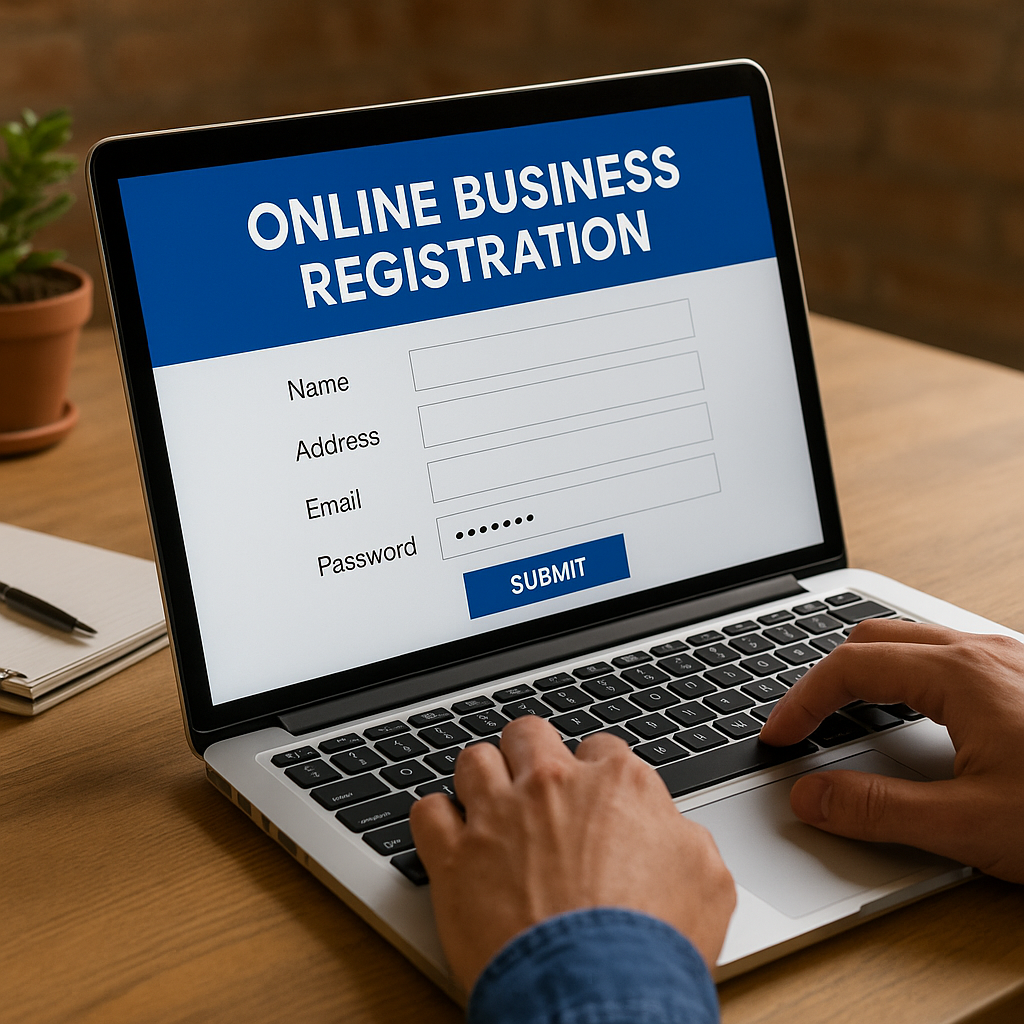Making the registration process more efficient reduces costs and encourages startups to move from idea to action. Entrepreneurs save time and avoid confusion, allowing them to focus on customer development, product iteration, and market entry. Simplified systems help conserve time and capital while reducing stress from complex procedures. Many countries and cities use digital platforms for registration, often integrated with advisory and financial services, supporting entrepreneurs at early stages. These improvements make the business community more dynamic and inclusive, empowering more people to launch businesses. This leads to more innovation and job creation in local economies.
Starting a business comes with a flood of new responsibilities, and for many entrepreneurs, the initial registration process is one of the biggest barriers to getting off the ground. The journey is often riddled with complicated forms, numerous legal checks, and a daunting stack of requirements—all of which can make even the most passionate founders feel discouraged before they even open their doors. For some, the complexity creates costly delays, resulting in lost momentum or opportunities. Beyond the paperwork, navigating the array of federal, state, and local regulations can quickly become overwhelming, especially for first-time small business owners. The necessity for simplification of these registration requirements is paramount to supporting innovation and sustainable economic growth in a rapidly evolving business landscape. By introducing new technologies and creative procedural solutions, governments and service providers can make launching a business less intimidating and more accessible to a diverse range of entrepreneurs—from seasoned founders to first-timers. Entrepreneurs can also ease this journey by seeking out specialized support, such as startup financial operations services, which streamline not only the registration process but also help manage ongoing regulatory compliance, bookkeeping, and tax obligations. With a robust support system in place, founders have more freedom to push boundaries, focus on building their vision, and spend less time getting caught in bureaucratic red tape—all crucial factors in turning a great idea into a thriving, sustainable venture.
Table of Contents
Online Registration Portals
Traditional business registration forms and processes are often paper-centric, time-consuming, and dispersed across different government offices, requiring numerous trips and endless paperwork. The cumulative time spent gathering documents, scheduling appointments, and waiting for approvals can drag out the process for weeks or months. The shift to online registration portals has revolutionized this process. It allows entrepreneurs to register companies from wherever they are, at any time, even outside of regular business hours, which is crucial for those balancing day jobs or operating across time zones. Modern integrated platforms provide features beyond simple online forms: users can submit documentation, manage corporate records digitally, monitor application statuses, and receive automatic notifications and updates about deadlines or additional requirements—all without setting foot in a government office. This digital-first approach drastically cuts down on waiting times, virtually eliminates human transcription errors, and fosters a more entrepreneur-friendly path for new businesses to set up and thrive. In many countries, the introduction of online portals has been directly correlated with an increase in new business formations, highlighting just how significant convenience and transparency are for would-be founders, and ultimately contributing to more vibrant economies.
AI Integration
Artificial intelligence is rapidly transforming both compliance and registration protocols by automating repetitive paperwork, pre-populating forms, and providing intelligent, context-specific guidance at each step. AI-powered tools can instantly scan and check required documents, flag any missing or incomplete content, and even interpret complex regulatory language, making the application process smoother for those unfamiliar with legal jargon. Some advanced digital registration platforms utilize AI chatbots available 24/7 to answer applicants’ questions on the fly, offering reassurance and clarity in an otherwise confusing system. These intelligent assistants can help entrepreneurs sidestep costly mistakes, avoid frustrating delays, and promptly respond to regulatory changes. By delegating these formerly manual and error-prone tasks to intelligent systems, government registration offices are able to reallocate staff resources to more complex cases or offer more personalized support, thereby improving turnaround times and service quality for all users. The technology is still evolving, but its adoption points to a future in which the business registration experience will be faster and more user-friendly, erasing many of the current pain points for new business owners.
Blockchain Technology
Blockchain is emerging as a powerful tool in business registration, providing a secure, transparent ledger for ownership records and registration status updates. Instead of relying on disparate, paper-based databases that are often difficult to update and audit, jurisdictions experimenting with blockchain allow changes and transfers of business ownership to be recorded on a tamper-resistant ledger. This digital record easily maintains its integrity over time. This has far-reaching benefits: it not only significantly reduces the opportunity for fraud by preventing unauthorized or hidden ownership changes but also speeds up due diligence processes for investors and regulators. Since all actions are logged and traceable, authorities and business partners can instantly verify a company’s legal existence and compliance status, supporting faster access to banking, loans, and government contracting opportunities. The instant auditability of blockchain makes accurate business verification and compliance checks much more effective than traditional systems, and it can also enable international interoperability between jurisdictions. As the global business community becomes increasingly digitized, more governments are exploring blockchain-based solutions for registration to foster safer and more trustworthy environments for new ventures.
Digital Nomad-Friendly Options
The acceleration in remote work and global entrepreneurship has prompted several countries to introduce special registration pathways catering specifically to digital nomads and location-independent founders. Rather than requiring a permanent physical address—often an insurmountable obstacle for those who may be traveling or moving cities—the most innovative systems now allow for full company registration and licensing based on secure digital credentials, verified online identities, and remote bank accounts. Nations like Portugal, Estonia, and Costa Rica have led the charge by introducing digital nomad visas and favorable tax treatment, all while offering streamlined paperwork and government services fully accessible online. These progressive policies have not only enabled a new influx of freelancers and micro-enterprises to flourish but have also driven local economies by attracting international income streams. Lowering barriers for mobile business creators builds global connections, stimulates tourism, and further positions forward-thinking countries as magnets for innovation and entrepreneurship.
Centralized Information
Many entrepreneurs cite the scattering of critical information across various government agencies as a primary source of frustration, leading to wasted time, confusion, and even mistakes during the registration process. The concept of a “one-stop shop” for business licensing, permitting, and support services is gaining ground worldwide. Consolidated digital platforms now offer comprehensive, up-to-date information and interactive tools such as custom checklists, step-by-step guidance, document-upload portals, and links to relevant legal and financial resources, all in one accessible location. Features like personalized dashboards, FAQs, and direct messaging to officials reduce friction and help entrepreneurs confidently move forward, knowing exactly where things stand. These one-stop digital solutions dramatically reduce confusion and miscommunication, enabling faster launches and more confident founders. For instance, in the United States, the recently introduced One Stop Shop for Small Business Licensing Act of 2025 aims to centralize federal, state, and local requirements into a single user-friendly website, reducing unnecessary hurdles for business creators while providing a higher level of government support and transparency.
Policy Solutions
Policy efforts to further simplify business registration continue to gain traction among lawmakers, business advocacy organizations, and economic development leaders. Top priorities include reducing or waiving select low-risk licensing requirements for micro-businesses, promoting mutual recognition agreements between states or countries, and relentlessly pursuing the digital transformation of government processes and documentation. Legislative proposals such as the One Stop Shop for Small Business Licensing Act encourage the creation of unified, interoperable, digital-first platforms that agencies like the Small Business Administration could oversee. Public-private partnerships also play a critical role as technology companies contribute expertise, innovation, and customer service models that significantly improve the user experience. With continued collaboration and forward-thinking policy, the vision of a rapid, affordable, and universal business registration process is clearly within reach for entrepreneurs everywhere, and the path from concept to launch is shorter and less risky than ever before.
Conclusion
Streamlining the business registration process is crucial for fostering a more dynamic and inclusive entrepreneurial environment that benefits entire communities. Whether through advanced digital tools like AI and blockchain or the creation of centralized online hubs designed for user ease, both innovators and forward-thinking public officials play pivotal roles in breaking down barriers for aspiring business owners. As these creative approaches gain momentum worldwide, starting and growing a business is becoming markedly more accessible than ever before. The ultimate impact is empowering a new generation of diverse entrepreneurs who can pursue their vision with less friction and more confidence, ultimately driving local economies forward with agility, creativity, and resilience now and in the future.




